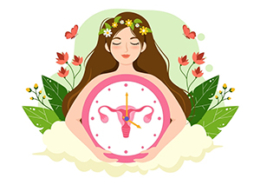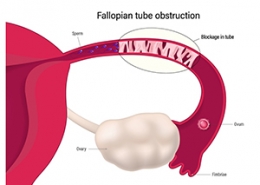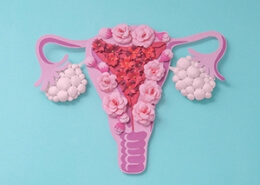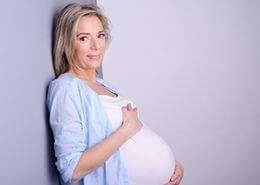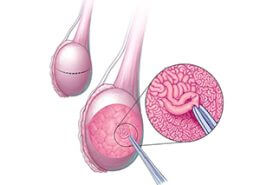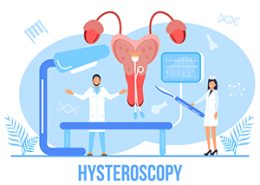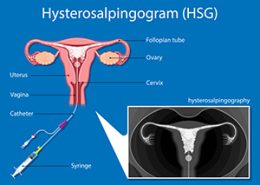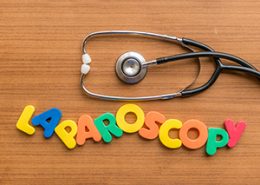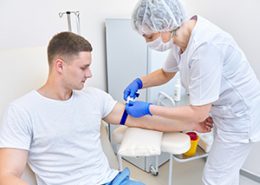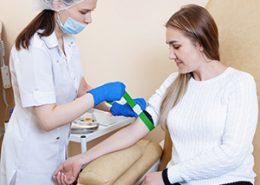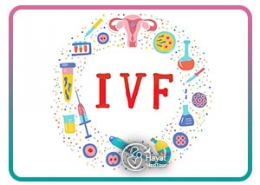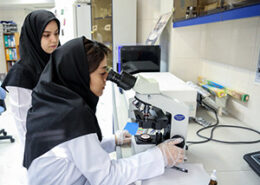Proper foods to eat before IVF
A healthy diet is an extremely important factor in maintaining human health. Because of the effects of parental general health on eggs and sperm, a balanced, healthy diet is critical before pregnancy and during IVF treatment. Diet is one of the crucial factors that affect the success rate of IVF treatment. Therefore, a healthy and nutritious diet can increase the chances of IVF success.
Proper nutrition provides the nutrients and energy needed to produce healthy eggs and sperm. The egg usually goes through a period of 90 days from the beginning of development to maturation and release from the ovaries. Sperm, on the other hand, are produced and mature in about 3 months. Nutritionists, therefore, recommend changing the diet at least 3 months before starting IVF treatment.

What is the best diet to follow before IVF treatment?
Factors such as genetics, lifestyle, and interests influence a person’s diet. However, research shows that the Mediterranean diet is one of the best diets before infertility treatment and during the IVF process. Clinical results show that sperm concentration, count, and motility are significantly higher in men who use the Mediterranean diet, while women under the age of 35 who eat the Mediterranean diet have a better chance of getting pregnant and giving birth alive.
The Mediterranean diet is not only a restrictive diet but also a simple and flexible diet that provides important nutrients such as vitamins, minerals, antioxidants, healthy fats, etc. The Mediterranean diet is often recommended to women planning pregnancy to increase the chances of a successful pregnancy. Learn more about healthy eating before having a baby: Best Foods to Eat When You’re Trying to Get Pregnant
The Mediterranean diet consists of fresh foods such as fruits, vegetables, whole grains, nuts, legumes, and healthy fats (e.g., olive oil), supplemented with fish, chicken, eggs, cheese, and yogurt. In this diet, you should eat fish and seafood at least twice a week, as they are rich in protein and omega-3 fatty acids. These two nutrients are very useful for pre-pregnancy health. In this diet, red meat should be consumed no more than once a week., while sugar and processed foods should be avoided.
What foods can improve the quality of eggs?
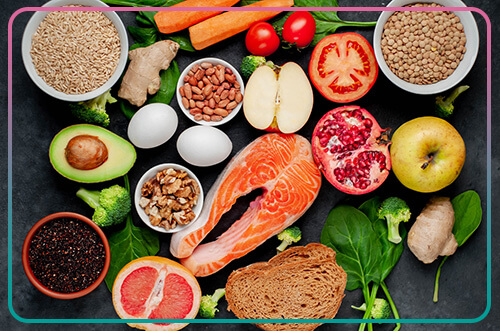
It is very important to pay attention to strategies that improve egg quality before IVF because healthy eggs can increase the success rate of IVF treatment. (Learn more about tips to improve egg quality: How to improve egg quality for pregnancy & IVF ) Proper nutrition is one of these strategies. To improve the quality of eggs, women who are planning to get pregnant are recommended to use the following nutrients:
Vitamin A.
Adequate intake of vitamin A before infertility treatment causes the ovaries to respond better to stimulation of ovulation. In addition, vitamin A improves egg quality and fetal growth. Carrots, pumpkins, sweet potatoes, and fruits are rich in vitamin A.
Vitamin B
Vitamin B family improves ovulation and egg quality. Vitamin B6 increases progesterone levels, which are critical for maintaining pregnancy after embryo transfer. In addition, vitamin B9, also known as folic acid, helps improve fertility and fetal development. The most common sources of vitamin B9 are leafy vegetables (such as spinach and broccoli), peas, beans, whole grains, meat, and eggs.
Vitamin D
Vitamin D is an important nutrient that promotes the release of hormones responsible for fertility. It has been proven that most women with ovulation problems are vitamin D deficient. This vitamin reduces inflammation and improves fertility. Fortified dairy products, fatty fish like salmon, and cod liver oil are among the good sources of vitamin D. It is very unsafe to take vitamin D or other supplements without consulting a nutritionist.
Omega-3 fatty acids
Omega-3 fatty acids regulate hormones and increase blood flow to the genital area. In this way, they can promote ovulation and improve the function of the uterus. A deficiency of omega-3 fatty acids can lead to premature birth or low birth weight. Although the most common sources of omega-3s are fish oils, flaxseeds, walnuts, and eggs, omega-3 supplements are also necessary to meet the body’s needs. As supplements can interact with some medications, they should be taken only after consultation with a physician. Omega-3 supplements, for example, interact with anticoagulants and can lower blood concentrations and cause bleeding. Low blood concentration can lead to failed implantation and cause the failure of IVF. Learn more about reasons for the failure of IVF: Causes of IVF failure
Iron
Iron deficiency interferes with ovulation and affects egg quality. Therefore, for proper ovulation and fertility, there must be enough iron in the diet. Iron is found in lentils, beans, spinach, meat, pumpkin, and whole grain.
Unsaturated fats.
Healthy fats provide the body with energy, balance hormones, and increase egg growth and quality. That is why nutritionists recommend increasing the consumption of unsaturated fats. Olive oil, avocado, and nuts are rich in unsaturated fats.
What foods can Improve sperm quality?

Sperm abnormalities are one of the main factors contributing to infertility in men. It is important to pay attention to sperm health and quality before starting IVF treatment. Spermatogenesis (i.e. the complete cycle of sperm production and maturation) takes about 90 days. Therefore, to improve sperm quality, nutritional care should be started about 3 months before starting IVF treatment. Foods that promote sperm quality are the following:
Selenium
Selenium is a powerful antioxidant that works with sperm to neutralize free radicals. In addition, selenium is essential for sperm motility and quality. Wheat bran, nuts, cereals, sunflower seeds, sesame seeds, and fish are considered common sources of selenium.
Zinc
Zinc improves sperm motility and quality and protects their DNA from damage. Therefore, taking adequate amounts of zinc can increase the chance of successful IVF. Zinc is found in fish, red meat, poultry, wheat germ, and pumpkin seeds.
Vitamin Q10
Vitamin Q10 (also known as coenzyme Q10) is an antioxidant that improves sperm count, motility, and quality. Common sources of vitamin Q10 include peanuts, pistachios, soybeans, walnuts, hazelnuts, apples, broccoli, carrots, corn, flaxseeds, barley, potatoes, and salmon.
Learn more about the ways to boost sperm quality and increase fertility in men: How can sperm quality be improved?
What foods should be avoided before IVF?
The following foods should not be consumed before and during IVF:
Trans fatty acids
Trans fatty acids, which are found in fast food and convenience foods, have an unpleasant effect on the quality of eggs and sperm. So, it would be advisable to avoid these types of foods during IVF treatment.
Artificial sweeteners
Beverages and foods sweetened with sugar can have a negative impact on sperm quality. Therefore, excessive consumption of sweets, soft drinks, and industrial juices increases the risk of male infertility.
Alcohol
Alcohol consumption has a negative impact on the quality of eggs and sperm.
Caffeine
Caffeine should not be consumed more than 400 milligrams per day as it would interfere with IVF treatment. Therefore, it is better not to consume caffeinated drinks such as coffee and energy drinks during the IVF process.
Environmental hormones
Environmental hormones, also known as xenoestrogens, are hormone-like compounds that negatively affect male fertility. These compounds can enter the body through plastic bottles, Tupperware, food additives, and preservatives. Therefore, drinks and food should not be served in plastic containers, and foods containing preservatives and additives should be avoided at all costs.
How does obesity affect IVF success rates?

Inflammation plays an important role in the proper implantation of the embryo and thus in the success of IVF. Any type of inflammation can decrease the chances of successful IVF. Obesity and overweight are the main factors that cause inflammation in the body. Therefore, if overweight or obese women want to increase their chances of successful IVF treatment, they should consult a nutritionist and lose weight before starting IVF treatment.
Weight loss is also critical for women with polycystic ovary syndrome (PCOS). A 10% weight loss can increase the chances of successful IVF treatment by up to 40-50%.
It is important to note that the proper rate of weight loss varies from person to person and depends on several factors such as age, medical history, and weight fluctuations over the past few years. It is recommended that weight loss be performed three months prior to IVF treatment under the supervision of a nutritionist. Weight loss should be planned and should be done at a normal pace and rhythm, as unscientific weight loss may affect the outcome of IVF treatment. Weight loss should be followed until embryo transfer and then it is best to stop it.
Weight loss in men is just as important as in women and significantly affects IVF success. Obesity and overweight have direct effects on testicular tissue and structure. In addition, obesity affects sperm count, quality, and motility by affecting sex hormones. Obesity decreases testosterone secretion and converts it to estrogen. Hormonal changes caused by obesity can damage sperm and reduce the chances of successful treatment. Therefore, it is advisable for couples to consult a nutritionist and control their weight before undergoing IVF treatment.
Latest tips about diet and food before IVF
It has been proven that healthy foods and diet before and during IVF have a significant impact on the success of the treatment and the occurrence of pregnancy. A balanced, healthy diet three months prior to IVF treatment and pregnancy improves egg and sperm quality. To increase the chances of success, nutritionists recommend couples planning IVF treatment to change their foods and diet 3 months before the IVF process begins.



